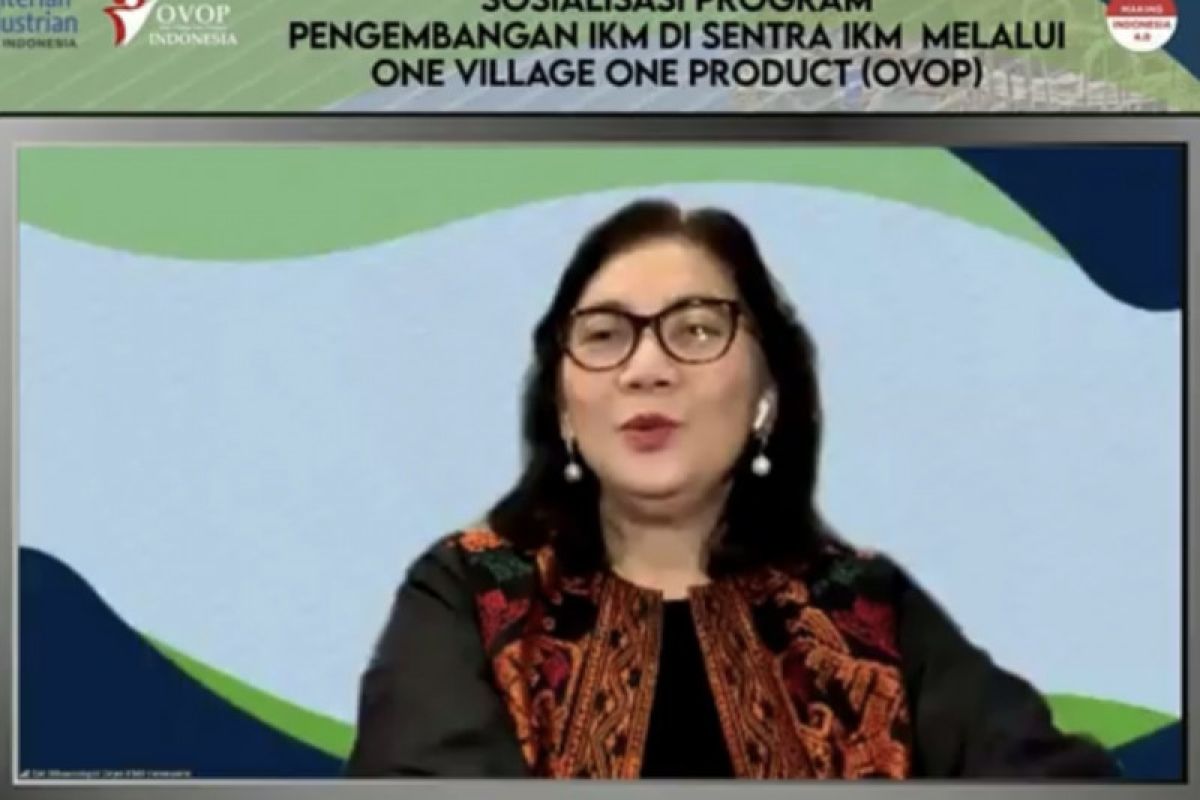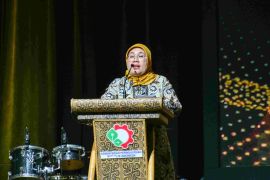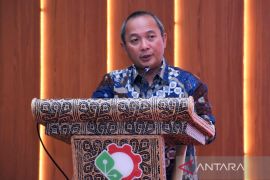"Through this ministerial regulation, district and city administrations are more active as the IKM's initiators, whereas the provincial government is included as the selection team, " the Industry Ministry's Director General for Small and Medium Industries Gati Wibawaningsih said in Jakarta on Thursday.
The IKM OVOP's proposal was made online through a web-based application accessible on www.ovop.kemenperin.go.id, she said, adding that central-based IKM coaching had developed through various approaches, with OVOP being one of them.
The coaching model aims to encourage regions, with strong cultural values, to create competitive products to penetrate national or international markets.
OVOP, as a concept, was introduced by Dr Morihiko Hiramatsu in the Oita Prefecture, Japan, in 1979. The concept pushed the local public to create competitive products with more added value.
"Apart from that, (they) can compete globally, yet still retaining the uniqueness and characteristics of their regions by using local resources, be it natural or human," Wibawaningsih stated.
Related news: Indonesia shoes production ranks fourth in the world
She remarked that central-based IKM coaching was based on three basic principles: local yet global that emphasized the ability of local people to create products that can compete globally; self-reliance and creativity that highlighted the community's self-sufficiency that drove the OVOP program; and human resource development, wherein a big success factor of the OVOP program was the management of human resources.
Wibawaningsih further elaborated that Indonesia’s valuable asset in the form of its rich biodiversity had made the nation superior.
She pointed out that the government had constantly striven to enhance the competitive value of industrial products, particularly IKM products, by highlighting their unique aspects. For instance, the raw materials, unique characteristics, traditions, cultural values, or reputation.
"In terms of food and beverage, who can deny the varieties, right from rendang and dodol to amplang (fish cracker snack), among others," Wibawaningsih stated.
She noted that batik was declared as a Masterpiece of Oral and Intangible Heritage of Humanity by UNESCO in 2009, thereby strengthening its status as a commodity. The art of weaving is seen nationwide, through myriad varieties and characteristics.
Materials, such as pandan, bamboo, purun, and ketak, are used to create woven goods that have been around for long. Earthenware commodity has been around longer, with its history dating back to the royal times in Indonesia.
Wibawaningsih stated that 112 IKM partaking in the 2018 OVOP program was too less a figure if the rich biodiversity and cultural heritage of Indonesia are taken into account. She is optimistic that the figure would increase in the coming future.
Related news: Trade ministry encourages small, medium industries to utilize e-commerce
Translator: Sella P G, Mecca Yumna
Editor: Rahmad Nasution
Copyright © ANTARA 2021












